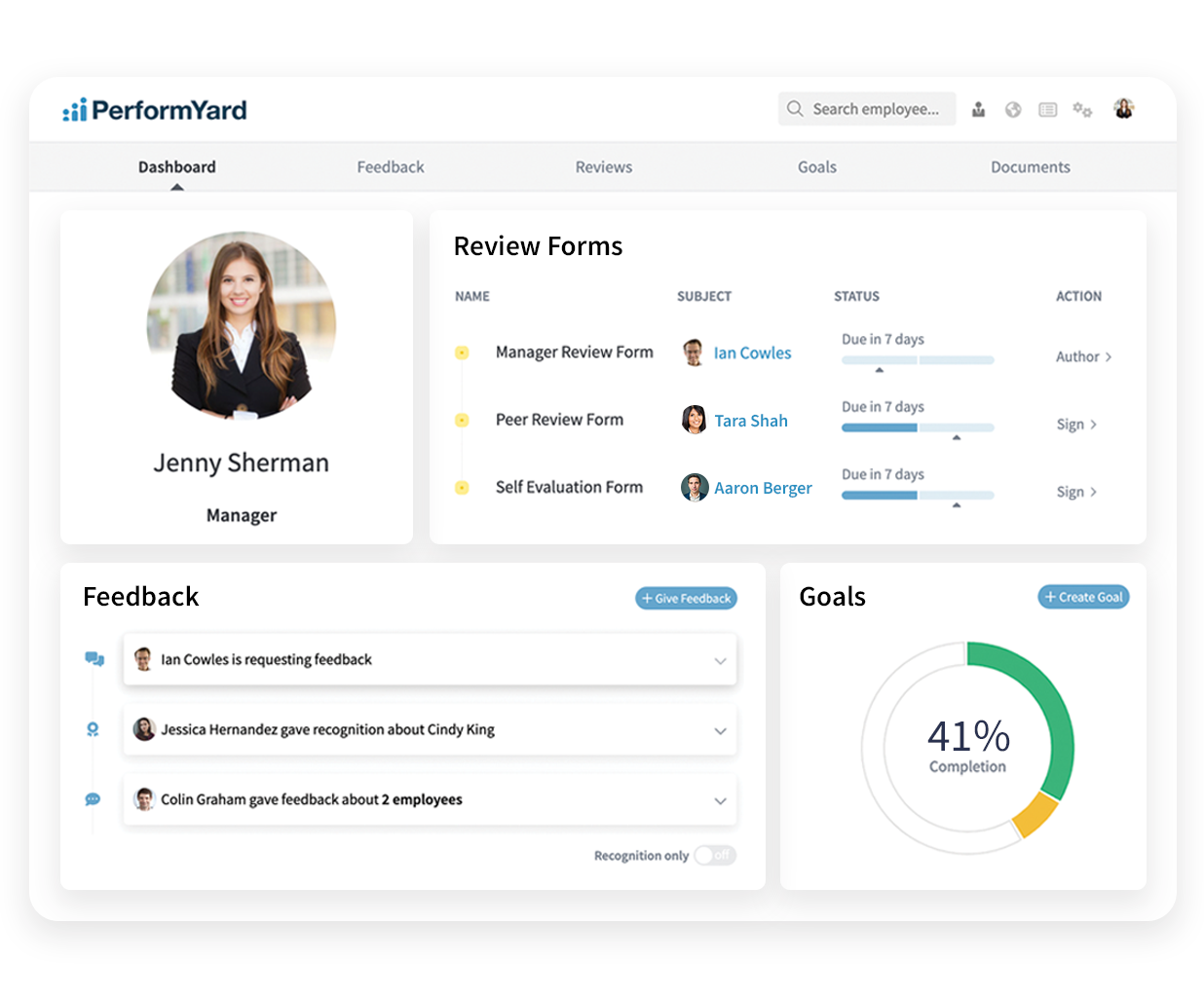Biotech Performance Management & Reviews in 2025
Performance management in biotech goes beyond tracking tasks. It’s about aligning everyone’s work to drive big ideas and meet ambitious goals. When individual contributions align with the organization’s mission, teams operate with clarity and purpose.
Performance management provides focus and motivation for scientists and researchers managing long-term projects. For business and regulatory teams, it ensures timelines and compliance are met effectively. Together, these systems create a foundation for innovation and operational success.
Challenges in Biotech Performance Management
Biotech companies face unique hurdles in performance management. Teams often include specialists from vastly different fields—from research scientists to regulatory experts—which means evaluations need tailored criteria. Projects can span years, making relying on traditional short-term performance metrics hard. The fast pace of scientific discovery and shifting regulations requires performance systems to remain flexible. Finally, balancing immediate tasks with fostering long-term innovation can be complex but critical.
Key Elements of Performance Management
- Setting Goals - Effective goals are specific, measurable, and tied to organizational needs. Frameworks like OKRs (Objectives and Key Results) or SMART (Specific, Measurable, Achievable, Relevant, Time-bound) goals can help. Biotech thrives on collaboration, so goals should acknowledge both individual achievements and team successes. For instance, celebrating a lead researcher’s innovation alongside the team’s problem-solving efforts fosters a sense of shared accomplishment.
- Regular Feedback - Frequent feedback helps employees stay aligned and adapt to changing priorities. Constructive input from supervisors, peers, and cross-functional collaborators creates a culture of continuous improvement. Imagine an R&D scientist whose ideas streamline regulatory processes; such contributions should be highlighted and valued.
- Performance Reviews - Periodic reviews—whether quarterly or annual—offer an opportunity to evaluate progress, leadership skills, and adaptability. These reviews should look beyond technical achievements to assess how individuals contribute to team dynamics and broader organizational goals. For example, recognizing how a team lead coordinated between departments during a clinical trial can provide meaningful insights.

- Reward and Recognition Systems - Acknowledging achievements is critical for motivation and morale. In biotech, recognizing big and small contributions—such as innovative ideas, milestone achievements in long-term projects, or teamwork in regulatory submissions—can reinforce desired behaviors and drive performance. Customized rewards for individual and team accomplishments can also align with organizational values.
- Competency-Based Evaluations - In biotech, where technical expertise is essential, evaluating competencies such as problem-solving, technical innovation, and scientific rigor can help identify strengths and areas for development. A competency framework ensures evaluations are aligned with the unique demands of different roles, from lab scientists to project managers.
- Employee Engagement Metrics - High engagement levels are often linked to better performance. Incorporating tools or surveys to measure employee engagement can provide insights into morale, alignment with organizational goals, and areas needing improvement. For example, feedback on workplace culture, support structures, or growth opportunities can help refine performance management systems.
- Cross-Functional Contributions - Given the interdisciplinary nature of biotech, ensuring that cross-functional contributions are evaluated and celebrated can strengthen collaboration. For example, incorporating metrics that track how R&D teams coordinate with regulatory or marketing teams ensures comprehensive performance management.
Leveraging Technology for Streamlined Reviews
Technology plays a vital role in modernizing performance management. Software tools can track milestones, measure results, and provide actionable feedback in real time. For instance, analytics might reveal patterns in a scientist’s productivity, suggesting ways to optimize workflows.

Platforms like PerformYard simplify performance reviews by centralizing goal management, feedback, and progress tracking. This streamlined approach helps biotech companies monitor R&D milestones and foster effective collaboration.
Additional Considerations for Biotech Companies
Encouraging Teamwork - Collaboration is essential for success in biotech. Performance management systems should prioritize and reward team achievements alongside individual contributions. For example, recognizing the combined efforts of R&D and QA teams during a product approval process highlights the importance of cross-functional teamwork.
Linking Performance to Growth - Performance management is most impactful when connected to professional development. Companies should provide clear career pathways and training opportunities to help employees stay ahead of advancements in their fields. Encouraging experimentation and innovation, even in the face of failure, is vital. A failed experiment might inspire new research directions that lead to groundbreaking discoveries.
Staying Fair and Ethical - Fairness and transparency are critical in performance management. Using standardized criteria helps reduce bias, while open communication builds trust. Ethical evaluation is particularly important in biotech, where data integrity and patient safety are paramount. For example, ensuring fair assessments of clinical trial protocols reinforces both compliance and ethical standards.
Monitoring Future Trends - Emerging technologies like AI and machine learning are transforming performance management. These tools analyze data to uncover trends, predict outcomes, and personalize feedback. Metrics are also evolving to better measure long-term impact, innovation, and teamwork. With remote and hybrid work becoming more common, companies are adopting new ways to track productivity and foster collaboration across dispersed teams.
By embracing these advancements and tailoring systems to the specific needs of biotech, companies can build resilient teams and achieve sustained innovation.




.jpg)